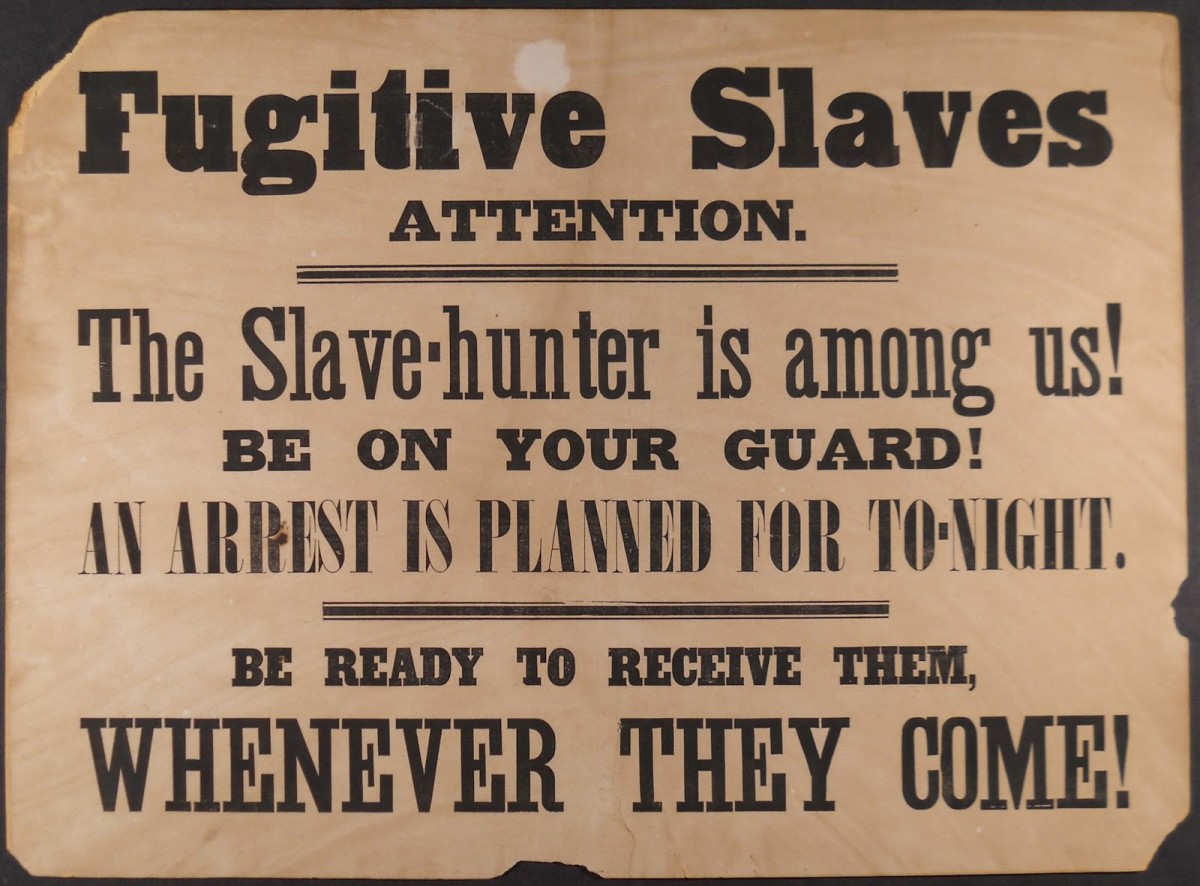Fugitive Slave Act (1850)
Wed Sep 18, 1850

On this day in 1850, the Fugitive Slave Act was passed by the U.S. Congress as part of the Compromise of 1850, compelling all in free states to return fugitive slaves to their would-be masters and banning suspected slaves from legal appeal.
The Compromise of 1850 was brokered between Southern slavers and Northern Free-Soilers. This law greatly expanded on the racialized terror of the previous Fugitive Slave Act of 1793, written with the intent to enforce Article 4, Section 2, Clause 3 of the Constitution, which required the return of runaway enslaved people.
The Fugitive Slave Act of 1850 compelled all authorities in free states to return fugitives of enslavement to their masters, penalizing officials who did not arrest an alleged runaway slave, prevented suspected slaves from asking for a jury trial or testifying on their own behalf, and subjected any person aiding a fugitive slave by providing food or shelter with six months’ imprisonment and a $1,000 fine.
The Act was one of the most controversial elements of the 1850 compromise; abolitionists nicknamed it the “Bloodhound Bill”. The political fallout from its passage is considered by some historians to be one of the causes of the Civil War.
- Date: 1850-09-18
- Learn More: en.wikipedia.org, socialwelfare.library.vcu.edu, www.britannica.com.
- Source: www.apeoplescalendar.org
deleted by creator
No
Most countries are like that. The past is full of nasties wherever you look. That’s why it’s important that topics like these are discussed and studied, so that future generations do not repeat the mistakes of the past.
deleted by creator
So random thought here, is the US’s bad history with slavery a direct result of European colonialism? Like I’m not saying it’s all Europe’s fault, but Europe did export many racist things(?) over to the US. Like they brought over the institution of slavery, France invented a racist caste system for it’s colony based directly on how closely descendant a person is from a European. Many plantations were growing cash crops to ship back to Europe.
I’m not trying to absolve the US in its actions, but try to understand how it got there in the first place.
Also the best way to learn the truth is to say something wrong on the Internet, so tear my musings apart I guess.
I think it depends on how direct you’re talking, but I think that in general, yes, colonialism (and by extension, capitalism) is directly responsible for our ugly past and bitter present.
To say that exploitation is the main goal of colonialism is probably going a bit too far, but it is absolutely a major factor in the rise of colonialism. Not only was that level of expansion necessary to protect interests from other nations, but also it allowed for more resource exploitation in the form of spices or metals or jewels or whatever exotic thing could make them additional money back home in the center of capitalism, Europe.
From there it is a very short journey to investing in a captain who has a ship that can make the journey down to Africa to trade weapons for the “exploited resources” there. He can then use the prevailing tradewinds to travel to America to offload his human cargo and to pick up the exploited resources obtained by the other exploited resources and finally sail the exotic potatoes and tomatoes and sugar and alcohol back to Europe in exchange for a massive shitload of money. Rinse and repeat until the bubble bursts or war breaks out.
It was all a racket to make people money, but what Americans were left with was an “investment” in the form of enslaved peoples and a continent’s worth of resources to exploit.
So yeah, I’d say we inherited all of Europe’s sensibilities and stewed in them–unaffected by all of the upheaval abroad–for the next 250 years, content to somehow think we had it all figured out.
The Fugitive Slave Act of 1850 compelled all authorities in free states to return fugitives of enslavement to their masters, penalizing officials who did not arrest an alleged runaway slave, prevented suspected slaves from asking for a jury trial or testifying on their own behalf, and subjected any person aiding a fugitive slave by providing food or shelter with six months’ imprisonment and a $1,000 fine.
If that was the “compromise” , WTF was the initial bill asking for?
Yeah how gross was this?
The compromise was delaying the Civil War by a decade.
Wow five different fonts. Good to see radical posters and flyers have always gotten loose with the graphic design.
Might be because they didn’t have enough letters of the same font for each line.




